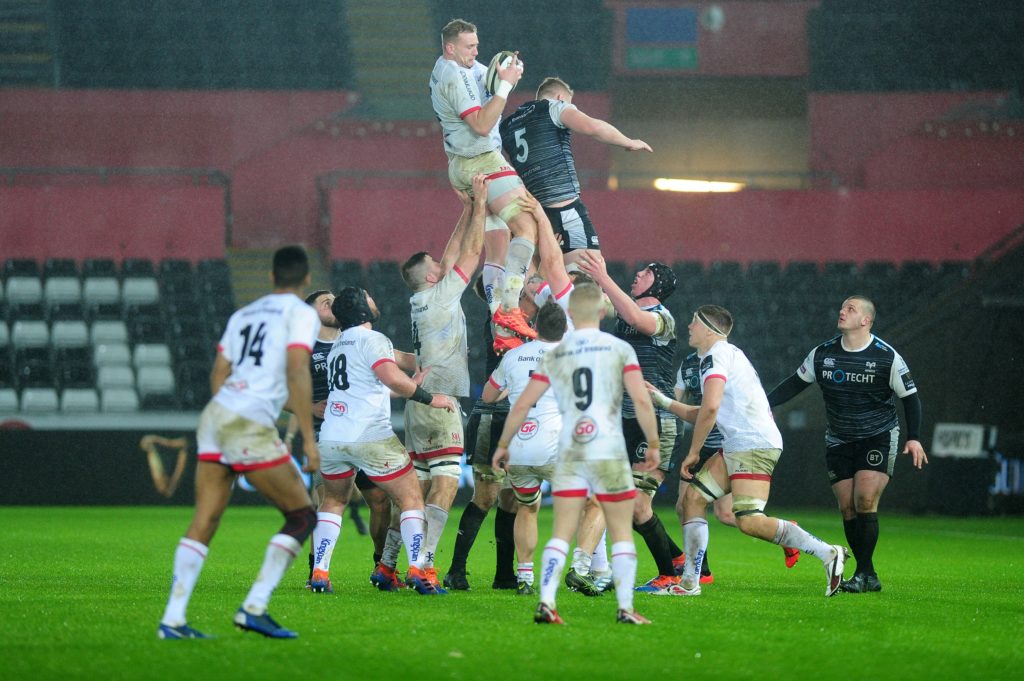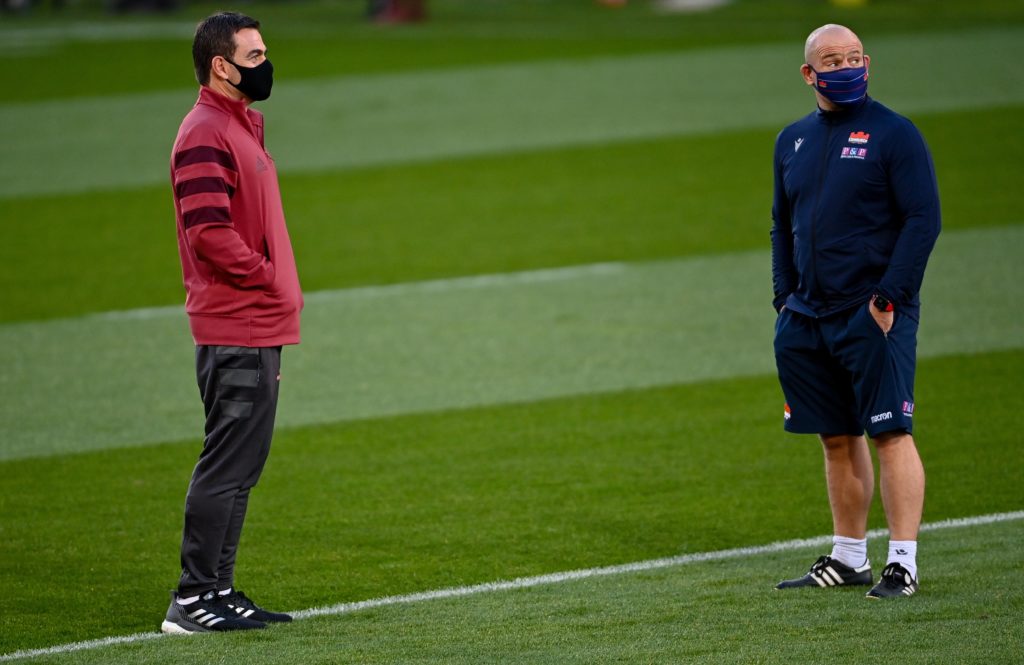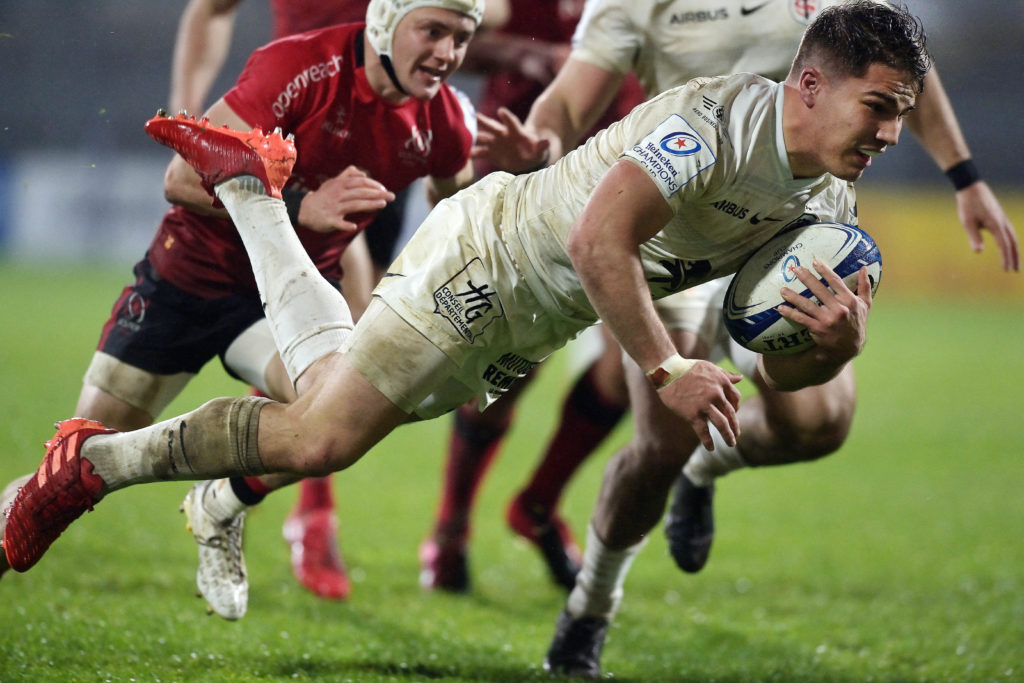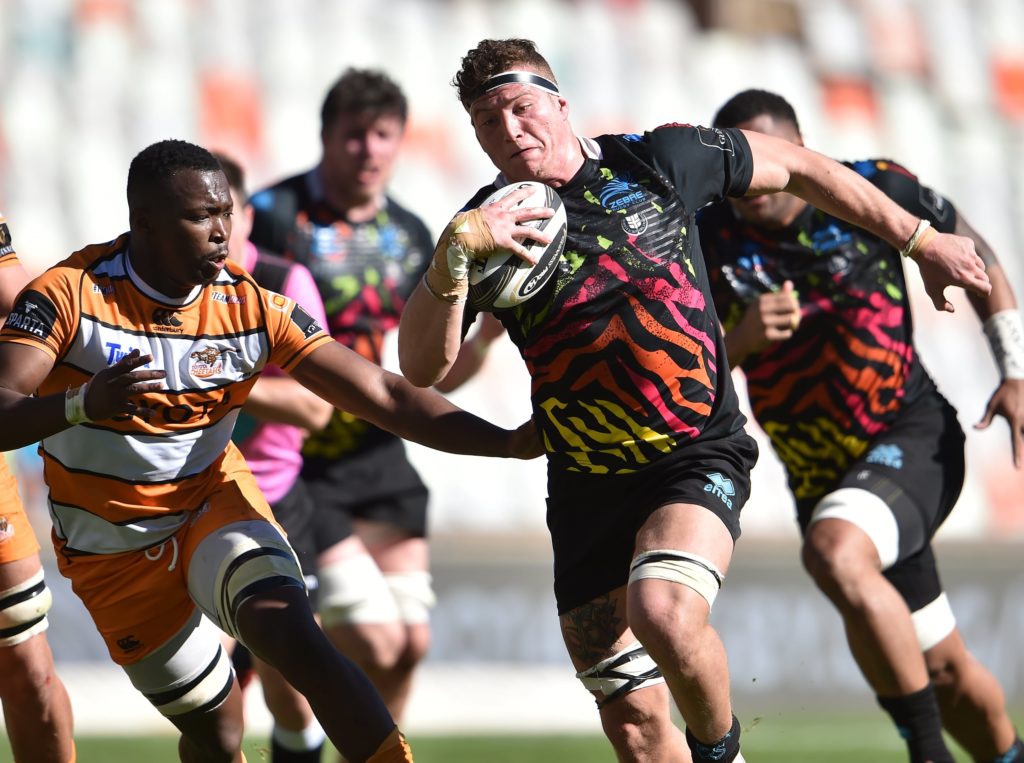At the end of a year in which Twitter saw fit to caution us that even posts via the thumbs of the leader of the Free World “might be misleading” you’d like to think as a society we have come to accept that you can’t believe everything you read on social media.
The Guinness PRO14, at least, must hope that to be the case.
For if you peruse the hashtag #ItsThePro14sFault you’ll find the league blamed for all manner of things – election results, the coronavirus and global warming among them.
This tongue-in-cheek repurposing of the trending topic by supporters of the competition is its own form of passive resistance, making light of the regular shoeing the league receives by those who consider it unfit for purpose at best, unwatchable at worst.
Structure, television deals, kick-off times, refereeing standards, squad rotation, departing stars, a lack of identity, sub-par teams, the absence of relegation…for detractors the list goes on and on (and on, and on, and on).
Structure, television deals, kick-off times, refereeing standards, squad rotation, departing stars, a lack of identity, sub-par teams, the absence of relegation…the list goes on and on.
Most consistent, it seems, however is the complaint that the league was somehow set up by the Irish teams, for Irish teams. The PRO apostrophe 14, so they say.
But while it has always felt that there is a sizeable, and far from silent, minority for whom the league will never be enough, it is becoming increasingly apparent that for all the noise whether the PRO14 has an Irish problem, or the Irish have a PRO14 problem, a problem there most certainly is.
With the 2020/21 season into its third month, the record of the four Irish provinces against their Welsh, Scottish and Italian rivals reads: Played 28, won 26, lost two. If the season ended today under last season’s structure, the play-offs would be an inter-provincial championship in all but name and there is little reason to imagine that will change between now and the knock-out stages.
In Conference A, where the gulf between the Irish sides and the rest is more pronounced, Ulster are already 25 points ahead of third-placed Ospreys while Leinster are yet to drop a point.

Both pace-setters have routinely wrapped up try-bonus points before half-time in games throughout this autumn and winter, their dominance exacerbated by an elongated Test window and the seemingly greater detrimental effect upon the playing budgets in Wales and Scotland brought upon by the pandemic.
Spending pennies won’t close the gap on those paying in pounds.
“The team we played last weekend [Leinster] have a budget of about £14 million, our budget is £5 million,” said Cardiff Blues head coach, John Mulvihill, after he was criticised by former Wales captain Gwyn Jones for an apparent acceptance of a 40-5 reverse in Dublin last month.
“They are two completely different countries and the game is run completely differently.
“I know how big the schools and the academies are. That all feeds into a massive pathway.
“They’ve got massive strength in depth across the park.
“The No.10 (Harry Byrne) who played against us last weekend has been called into the Irish squad and he’s third choice at Leinster.
“Fair play to them, they’re doing really brilliant work but it’s just a completely different scale to where we’re at.”
Leinster’s budget is about £14 million, ours is £5 million.
John Mulvihill, Cardiff Blues.
There was little fault to be found in the argument. There are clearly intrinsic geographic benefits to a big-city locale with the concentration of population always likely to yield some advantage. The fact that nine of Leinster’s 23 that beat Northampton in the RDS attended the same school says plenty about the strength of that particular pathway which Mulvihill knows from his time as a youth development officer in the province.
The PRO14 isn’t the only competition struggling to counter such societal trends. It is worth noting that Leinster aren’t even the most dominant team on show in the Irish capital. That unofficial title belongs to the Dublin Gaelic footballers, who won a historic sixth consecutive All-Ireland championship this month. Such is their dominance, pundits have suggested splitting them in two to give the other 31 teams a chance.
When it comes to the financial muscle and Mulvihill’s stated budgets, again the gap between the Irish and the rest is telling, with Ulster much closer to his cited figure for Leinster than Cardiff. The northern province’s last annual report, prior to Covid-19, cited a total expenditure of £12million over a 14-month period of which £5.9million went on player salaries, management costs and medical expenses.
While Covid-19 and its associated impact will require everyone to take a haircut, Edinburgh’s Richard Cockerill is concerned that the Irish will get a trim compared to the buzzcuts of their rivals.

“It is a less than perfect combination (of) we have no budget and there will be none made available,” he said by way of explaining how his side had gone from being seconds away from beating Ulster in a PRO14 semi-final in September to a 43-14 home reverse at the hands of the same opposition just months later.
“It is just very difficult for us. If you look at Ulster over the summer, they recruited an All Black nine (Alby Mathewson) and an international Ireland ten (Ian Madigan). We lost our second choice ten in Simon Hickey, lost Matt Scott, and we are not replacing them at all. These are the facts.
“This is not a problem that is going to go away because our funds are going to get less, not more. Therein lies the trick of trying to manage this squad and having double figures of Scotland players away though Test match windows and moving forward having smaller budgets.
“The concern for me is that this is going to be more of the norm. We were getting to the point when we were starting to compete with teams and my concern is that our budgets will be smaller for next year. That is just the nature of it. Our competitors don’t seem to be losing players or cutting budgets like we have. Glasgow are the same. People have to understand where we are at.”
My concern is that our budgets will be smaller for next year. That is just the nature of it. Our competitors don’t seem to be losing players or cutting budgets like we have.
Richard Cockerill
While neither Mulvihill nor Cockerill are prone to the usual post-match platitudes, when one warns publically “this is not a problem that is going to go away” you have to wonder just what they’re saying in private.
As dispiriting as it must be for the Cardiffs and the Edinburghs, not to mention neutrals who can surely take little enjoyment from such lop-sided contests, the mood music coming out of Ireland is similarly ominous. As anathema as the concept seems in the world of competitive sport, the provinces are simply too dominant for it not to be a concern.
Increasingly unworried about the prospect that David will take down Goliath, the league’s relative giants are now acknowledging the fear that their fixture lists are leaving them unprepared to meet whatever lurks at the top of Jack’s beanstalk.
Relentless as they steamrolled their way through the PRO14 ahead of their Champions Cup campaign, Leo Cullen said he was “seeing (worrying) trends” emerging in his three-peat league champions, like a golfer sending prodigious drives on the range but developing bad habits that will only fail a stress-test come the first tee.
Ninety miles to the north and Ulster’s Dan McFarland was similarly unsure of how form in the PRO14 would translate to Europe.
“In terms of the step up, yes I am worried about that and we have spoken about it as a team,” he said prior to the opening round of pool fixtures.

“I genuinely don’t want to denigrate any of the opposition we have been playing because a lot of them have been decimated by international call-ups and missing guys through injury, but the bottom line is we won all eight games and got bonus points in six of them.
“Is that a trend you expect to carry on through European and inter-provincial games? Absolutely not, that is not going to happen.”
It most certainly did not. His side are already all effectively out of quarter-final contention in the Champions Cup after losses to both Toulouse and Gloucester. Having entered Europe on an eight-game winning streak, that featured an average margin of victory nearing 19-points, they proved ill-prepared for close games, losing both in the last 15 minutes.
Coming into Europe off the back of their first season without a European semi-finalist since 2015/16, the Irish sides lost four of their opening eight games, the first ten days of Champions Cup action producing twice as many combined losses as the previous two months of PRO14.
“I genuinely don’t want to denigrate any of the opposition we have been playing because a lot of them have been decimated by international call-ups and injury, but the bottom line is we won all eight games and got bonus points in six of them.
Dan McFarland.
With Connacht and Ulster both having had their hopes of a knock-out place extinguished, the picture would have been even bleaker had it not been for Munster’s scarcely believable comeback to beat Clermont in the Stade Marcel Michelin.
Leinster are held to a different standard and the test of whether they are a better side now than the one beaten by Saracens in the quarter-finals last season or the final a year prior will come only later in the campaign. After all, working your way through junior school past papers week after week can be no indication of whether you’re ready to sit a Masters degree.
While it will not be Saracens they face this time around, they cannot go spring to spring without the yardstick of a similar challenge, especially when the derby games against their nearest ‘domestic’ challengers such as those on tap for the festive period rarely see two full-strength sides on the same pitch.
The unavoidable reality is that change is overdue and is why 2021 that will define the PRO14’s future.
Previous expansions have been about new markets and new money. Whether it was the once mooted move into America or the additions of Italian pair Benetton Treviso and Aironi (now Zebre) followed by the South African duo of Southern Kings and Cheetahs, none of these new names were ever expected to address the difference between the league’s haves and have-nots.

But with the league’s competitive imbalance now a greater issue than its commercial one, the same cannot be said of the impending arrival of South Africa’s ‘big four’ – the Sharks, Lions, Bulls and Stormers. It was confirmed on Wednesday that a two-month ‘Rainbow Cup’ between the erstwhile Super Rugby quartet and the 12 Celtic and Italian teams will begin in April, presumably with a view to a more conventional season structure for 2021/22 and beyond, and the league’s press release was quick to herald the vast increase in star power to be provided by the likes of Siya Kolisi, Pieter Steph du Toit, Duane Vermeulen, Elton Jantjies and Makazole Mapimipi.
Prior to the announcement, the IRFU’s Performance Director David Nucifora had already described his union as “very supportive” of the plans for their inclusion while Ireland and Leinster centre Robbie Henshaw is another who has been extolling the virtues of the move as a way to “make the two groups way more competitive and bring different challenges.”
Expansion won’t cure all ills. Television income will still be dwarfed by French and English counterparts, Welsh regions may well still fail to capture wider public attention, while Scottish stars will likely continue to seek employment elsewhere. Plenty will #StillBeThePro14sFault.
But Irish sides can’t be concerned with whether a rising tide will lift all boats. They already know there’s little to be gained from being a yacht among dinghies.
More stories from Jonathan Bradley
If you’ve enjoyed this article, please share it with friends or on social media. We rely solely on new subscribers to fund high-quality journalism and appreciate you sharing this so we can continue to grow, produce more quality content and support our writers.



Comments
Join free and tell us what you really think!
Sign up for free